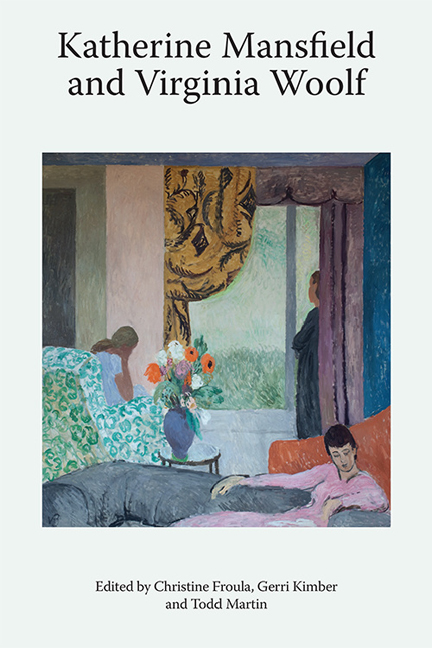Virginia Woolf’s ‘Moments of Being: “Slater’s Pins Have No Points”’: A Dramatic Adaptation
Published online by Cambridge University Press: 07 May 2021
Summary
NOTE: The spoken words, quotation marks and parentheses all come from Woolf's 1928 text (CSF, pp. 215–20). I thank the Society of Authors, executor for the Literary Estate of Virginia Woolf, for permission to reproduce copyright material. Formal permission must be obtained from the Society of Authors for any performance of this play.
The printed word is changed out of all recognition when it is heard by other people. […] Then again as the actors pause, or topple over a barrel, or stretch their hands out, the flatness of the print is broken up as by crevasses or precipices; all the proportions are changed. Perhaps the most impressive effect in the play is achieved by the long pause which Sebastian and Viola make as they stand looking at each other in a silent ecstasy of recognition. The reader's eye may have slipped over that moment entirely. Here we are made to pause and think about it.
Virginia Woolf, ‘“Twelfth Night” at the Old Vic’, The New Statesman, 30 September 1933. VWE6, pp. 5–8 (p. 5)
And, finally, though the leap from one thought to another was so wide as to produce a sense of dangerous dislocation, all the separate speeches and characters combined to create a single impression of an overwhelming kind.
Virginia Woolf, ‘The Cherry Orchard’ (St Martin's Theatre), The New Statesman, 24 July 1920. VWE3, pp. 246–9 (p. 247)
DRAMATIS PERSONAE
MISS JULIA CRAYE: Small and boyish, dressed conservatively in a severe navy blue. Her hands are adorned with rings made from semi-precious stones. Born a generation too soon, she has the body and looks of a perfect flapper. Her face gives away more than she intends. She sees herself as upright and professional, but sometimes the longing breaks through, and it disconcerts the observer as it is out of character both for what Miss Craye wants to be and for what the observer expects her to be.
FANNY WILMOT: Bright-eyed, pretty but without sophistication in her looks. She has a kind of blown-wildflower passion that never deliberately courts impropriety but just seems to fall naturally outside the bounds of perfect decorum. She is a dreamer but not a schemer, the sort of person who could make a discordant error in something as precise as a Bach fugue and make that error the most beautiful part of her performance.
- Type
- Chapter
- Information
- Katherine Mansfield and Virginia Woolf , pp. 158 - 172Publisher: Edinburgh University PressPrint publication year: 2018

